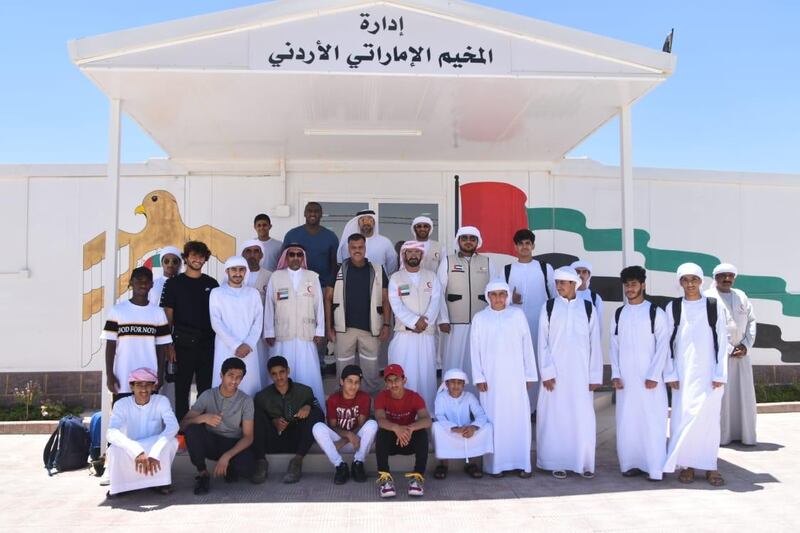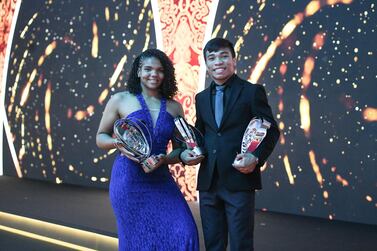Emirati teenagers are spending part of their summer living in refugee camps to teach jiu-jitsu to Syrians displaced by war.
The 30 students, aged 15 to 17, travelled to the UAE-run Mrajeeb Al Fhood camp in Jordan as the Emirates took its national Mohamed bin Zayed Summer Jiu-Jitsu Programme overseas for the first time.
This camp, which is supported by the Emirates Red Crescent, is home to almost 6,000 refugees.
Emirati pupils are assisting professional black-belt coaches, with two groups of 15 teenagers living in the camp for two weeks at a time and sharing meals and other facilities with those who have fled the war.
It is hoped that by learning the martial art, the refugees will develop self-defence skills and improve their confidence.
Organisers are also keen that the teenage volunteers, who help out with other tasks in the camp, benefit from the experience as well.
"It is so much easier for the younger participants to take part in the programme when they see people of their own age as coaches," said Fouad Darwish, general manager at Palms Sports, a UAE jiu-jitsu company supporting the programme. "It will also widen the scope for those Emirati kids, [teaching them] about what's going on abroad," he said.
“It will give them more recognition of how valuable the life we have here today is. We live very well here. When they learn about the dilemmas of other people, it will widen their thinking.
"They all stay in the same camp, they eat the same food as their refugee friends and stay in the same type of sleeping quarters. The volunteers do not leave the camp whatsoever."
It was initially planned that lessons in jiu-jitsu would be given only to young people but adult refugees have since expressed their enthusiasm to take part.
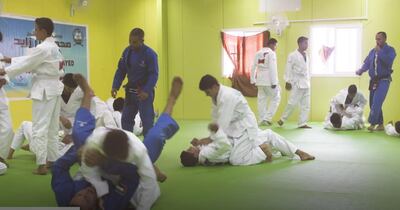
At first, five 90-minute classes were held every day but this has now risen to sometimes 10 or 11 lessons to meet demand.
Offering women the chance to learn self-defence in the camps also proved hugely popular, Mr Darwish said.
“We believe in equality. When we empower our kids, we empower them without discrimination.
"Living in a camp is not the greatest. You need to have these skills for survival; that's one of the reasons we did it, in collaboration with other organisations.
"We expected to be teaching people from [the ages of] 10 to 17. We did not expect kids of seven or eight to come in; we did not expect parents to come along with their kids wanting to learn this. We were very happy to receive them all."
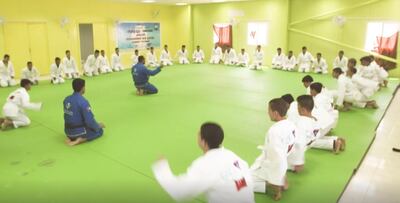
A jiu-jitsu training programme has been running in the UAE since 2009. Over the past decade, it has contributed to the country becoming a leading nation in the sport.
More than 140,000 people are believed to be involved, although this is the first time the training programme has expanded beyond the country's borders.
The summer lessons at the camp have been running since July 14 and will continue until mid-August. It is hoped that the programme will run again in future.
“The movement of the sport to the refugee camp is a step to a better life for the people inside,” said Fahad Abdulrahman bin Sultan, Undersecretary of Development at the Emirates Red Crescent.
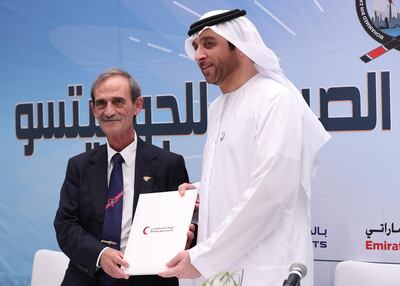
"It will give them skills that will help them in the future, enhancing their confidence after the psychological and physical damage they have been subjected to.
“This will help give them new skills of self-defence, discipline, courage, endurance and build a balanced personality.”
The sport of jiu-jitsu teaches participants values such as respect, love, peace and equality, Panagiotis Theodoropoulos, president of the International Jiu-Jitsu Federation, said yesterday.
“Hopefully, sooner or later, they [the refugees] will return to their countries and continue spreading jiu-jitsu and our ideas, free and happy again.”
